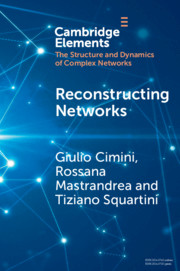1 results

Reconstructing Networks
-
- Published online:
- 10 August 2021
- Print publication:
- 09 September 2021
-
- Element
- Export citation

